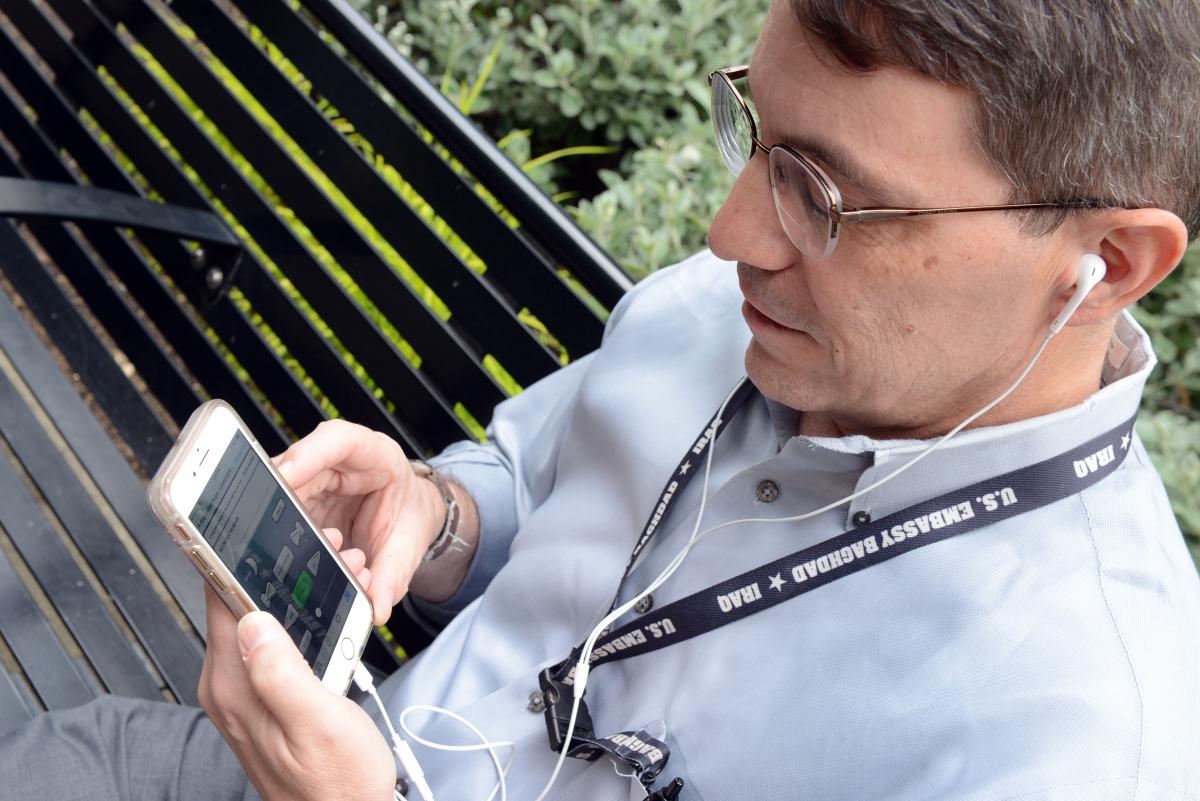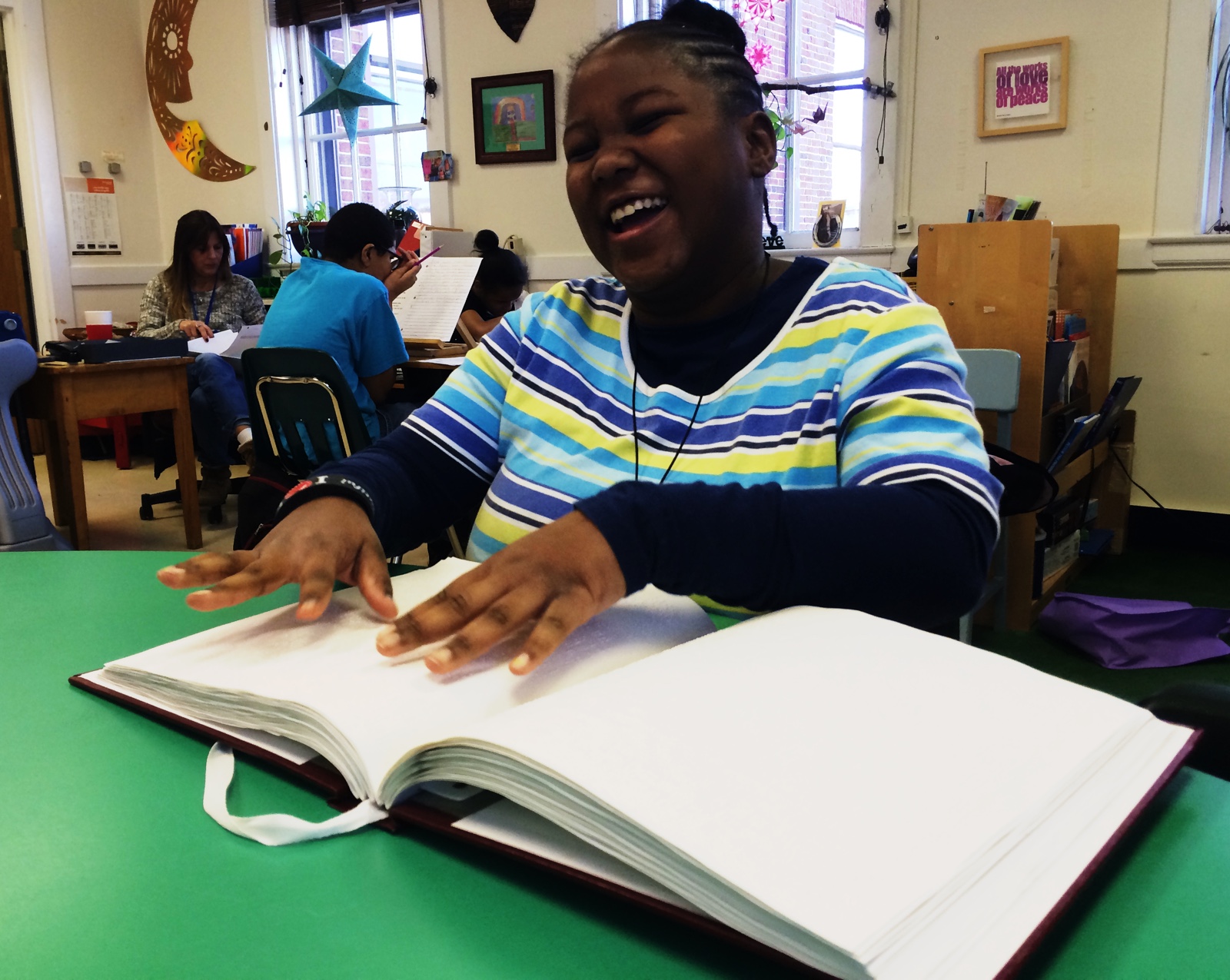Blog Posts | October 29, 2018
Share This
Emily Patterson
Communications Consultant
Most librarians know about the talking book service, a national program for blind, low vision, and physically disabled Americans run by the National Library Service. But they might not know all the new changes. In recent years, the program has developed a mobile app, streamlined its process for enrolling in BARD, the online database for downloading books, and grown available titles at an increasing rate.
In honor of Blindness Awareness Month, here are six key things every librarian should know about the talking book program.
What Librarians Don’t Know about Talking Books
Administrators of talking book programs for state libraries shared the top things they wish librarians knew about the program.
- The program isn’t just for the blind. In addition to giving blind people access to audio books, talking book programs also assist Americans with low vision, physically limitations that make holding a book difficult and reading disabilities, such as dyslexia. Impairments can be temporary or permanent. For information about eligibly, check out these resources on the NLS website
- Librarians can certify applicants. For applicants who are blind, low vision or have a physical disability, a librarian can certify their application. Applicants only need a doctor’s sign off if they have a reading disability. For most applicants, this makes applying for the program simple. In one visit to a local library branch, library staff can download the application, help the applicant complete it, certify it and fax it off to their regional library.
- Talking Book has gone digital. The talking book program once only mailed materials to participants’ homes. But it now has an app for Kindle, iOS and Android and online database, called BARD, where participants can digitally download titles. Michael Lang, Director of Kansas’s Talking Books Service, encourages participants to enroll in BARD. “You can get the books you want, when you want them,” he said. In Kansas, BARD users only account for 6% of total talking book program participants, but they make 22% of the books circulated. Typically, librarians help talking book program participants create an account on BARD. Then they can get the mobile app and directly download books.
- Librarians need to help get the word out. “Outreach is the biggest thing,” says Danielle Miller, Director of the Washington Talking Book & Braille Library. “Because so many people don’t know about the service. It’s kind of the best kept secret.” Miller recommends making sure that staff who run a library’s home service program, work on the book mobile or help patrons with assistive technology know about the talking book program. These are the people who are most likely to come in contact with seniors or other residents who could benefit from it.
- Have a demonstration account on hand. Every library should have a demonstration account with a talking book machine, audio materials and access to BARD. That way, they can demonstrate when out at a community event or help a patron at the library. If your library doesn’t have one, contact the regional library service to get set up.
- NLS has more books than ever. Currently, the National Library Service gets about 3,000 new titles a year. But this will grow to 5,000 per year in upcoming years, said Miller. Thanks to new agreements with commercial publishers, the National Library Service can now get access to books more quickly and grow the collection at a more rapid pace. Also, the newly-ratified Marrakesh Treaty will help expand access to non-English language content. The treaty means that the United States will share audio and Braille content with other ratifying countries. Soon, immigrants from participating countries will be able to obtain audio and Braille books in their native languages. “It’s really exciting and it will allow us to have a lot more foreign language materials available to our readers,” says Miller.

About the National Library Service and Talking Books
The talking book program is available in every state, and it’s administered by the National Library Service, part of the Library of Congress. About 40 states use IMLS funding to provide the service to their residents. The program is free to participants.
The talking book program provides more than best sellers. The program has 200,000 titles, which includes magazines, nonfiction books and foreign language content. The equipment available through the program is designed so that participants can use it independently, instead of having to rely on a relative or caretaker. Also, participants can keep titles indefinitely, allowing them to acquire their own personal library.
For more information about the Talking Book program, librarians can contact NLS by call (202) 707-5100 or toll-free 1-800-424-8567, or request an application packet.
